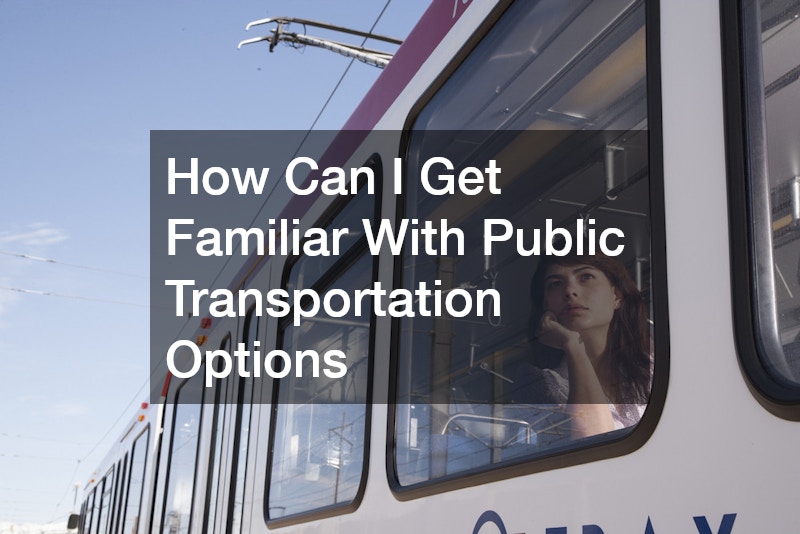Moving to a new location can be an exciting adventure, but it also comes with a fair share of challenges. From setting up utilities to finding trusted service providers, the process of settling in requires careful planning and a solid understanding of your new surroundings. Knowing which contacts and services to reach out to early on can make the transition smoother and less stressful. This guide will walk you through essential services, local resources, and practical tips to ensure you get comfortably settled.
How Do I Set Up Utilities In My New Location
Finding Your Local Utility Providers
The first step to settling in is establishing connections for your basic utilities. Start by identifying the companies that serve your area for electricity, gas, water, and sewage. Local government websites often provide directories for utility providers, but asking neighbors or a local moving company can give practical insights into service reliability and customer satisfaction.
Understanding Deposits And Fees
Utility companies may require deposits or setup fees before activating services. These charges can vary depending on your credit history, rental status, or prior service history. Researching this ahead of time allows you to budget accordingly and avoid surprises. Keep in mind that some companies may waive deposits if you have a good payment history.
Setting Up Electricity And Gas Services
Contacting a reliable electricity and gas provider should be a priority. Scheduling service activation before your move-in date ensures you won’t face any interruptions. In some regions, multiple companies offer competitive rates, so comparing plans can help reduce monthly expenses. An HVAC company can also provide guidance on energy-efficient appliances and heating systems for your new home.
Establishing Water And Sewage Connections
Water and sewage services are essential, and most cities assign these utilities to a local municipality or a specific company. Confirm the activation process early, as it may require property inspections or account setup for billing. If you encounter leaks or plumbing issues, local plumbers can provide swift and professional service.
Internet And Cable Services Options
Modern life often hinges on internet connectivity. Research local internet service providers and cable companies to compare packages, speeds, and costs. Scheduling installation ahead of your move ensures you stay connected from day one. Some providers also offer bundle deals that include streaming services or landline options.
What Schools Are Best For My Children In The New Area

Researching School Ratings And Reviews
For families, education is a top priority. Start by reviewing school ratings online and reading parent reviews. School performance metrics and extracurricular program offerings can help identify the right fit for your children.
Public Vs Private Schools: What To Consider
Understanding the differences between public and private schools is crucial. Public schools may offer a wide variety of programs and are generally tuition-free, while private schools may provide specialized curricula and smaller class sizes.
Registering Your Children For School
Once you select a school, complete the enrollment process as soon as possible. Required documents typically include proof of residence, immunization records, and previous school transcripts.
Understanding Local School Districts
School districts often influence zoning and program availability. Knowing which district you reside in can also affect eligibility for extracurricular activities and specialized educational programs.
Extracurricular Activities And School Programs
Extracurricular activities help children settle in. Kids programs at local community centers or libraries, including sports, music, and arts, offer engaging ways to make friends.
How Do I Find Reliable Healthcare Providers
Locating Nearby Hospitals And Clinics
Healthcare access is essential for every household. Begin by identifying nearby hospitals, urgent care facilities, and clinics. Knowing the closest emergency services can save crucial time in an urgent situation. Hospitals often provide community resources or referral services for local specialists.
Choosing A Family Doctor Or General Practitioner
A family doctor is a cornerstone of your healthcare network. Ask for recommendations from neighbors, local community groups, or online reviews. Establishing a primary care physician ensures your household has consistent access to preventive care and general health guidance.
Finding Specialists For Specific Needs
Specialized healthcare may need referrals. Research local pediatricians, dermatologists, and mental health professionals, and a local pest control company can provide referrals for allergy specialists if needed.
Understanding Health Insurance Requirements
Different locations may have varying insurance networks and coverage requirements. Review your policy carefully and confirm that your chosen doctors and hospitals are included. Understanding local healthcare regulations and co-pay structures helps avoid unexpected costs.
Alternative Medicine And Wellness Options
Many communities offer holistic services like acupuncture, chiropractic care, and wellness clinics. Local gyms and community centers also host workshops on preventive health practices.
How Can I Get Familiar With Public Transportation Options

Understanding Bus And Train Routes
Familiarity with public transportation is key to independent mobility. Review bus and train routes, schedules, and maps to plan daily commutes. Understanding the main hubs, transfer points, and express lines can save time and simplify your travel around the city.
Purchasing Transit Passes And Tickets
Many cities offer monthly or annual passes that reduce transportation costs. Some services provide student or senior discounts, making it worthwhile to explore all options. Transit apps can also provide real-time updates on schedules and delays.
Evaluating Biking And Walking Pathways
Active transportation, like walking or biking, is increasingly popular. Identify safe routes, bike lanes, and pedestrian pathways. Some cities offer bike-share programs that allow residents to rent bicycles for short trips, complementing public transit options.
Accessibility And Special Needs Transportation
If someone in your household has mobility challenges, research accessibility options. Many public transit systems offer ramps, elevators, and priority seating. Local transportation authorities often provide specialized services for seniors or individuals with disabilities.
Ride-Sharing And Carpooling Services
Ride-sharing and carpool networks help when public transit is limited. Local moving companies may recommend preferred routes and providers for newcomers.
Where Should I Go For Grocery And Everyday Shopping
Identifying Local Grocery Chains And Markets
Knowing where to buy groceries is a practical priority. Locate the nearest supermarkets and consider convenience, pricing, and quality. Some chains may offer loyalty programs or online shopping options that streamline your weekly routines.
Specialty Stores For Organic And Ethnic Foods
If you follow a specific diet or enjoy international cuisine, local specialty stores can provide hard-to-find ingredients. Farmers’ markets often supply fresh produce, and small ethnic markets give a taste of your new community’s diversity. Engaging with these stores supports local businesses and enriches your culinary experiences.
Money-Saving Tips For Shopping
Many newcomers benefit from learning local pricing trends, seasonal discounts, and store loyalty programs. Signing up for newsletters or following social media accounts of grocery chains often provides early access to promotions and sales.
Delivery And Curbside Pick-Up Services
For convenience, consider grocery delivery or curbside pick-up options. These services save time and minimize exposure during busy periods. Some local apps may combine grocery delivery with other errands, such as pharmacy or household supply orders.
Farmers’ Markets And Local Produce Options
Fresh, local produce enhances both health and enjoyment. Farmer’s markets provide seasonal fruits and vegetables while fostering connections with local growers. Participating in these markets helps newcomers feel more integrated into their community.
What Are The Options For Socializing And Community Engagement

Joining Local Clubs And Organizations
Building social connections is vital when relocating. Join hobby clubs, sports leagues, or interest-based organizations. These settings provide natural opportunities to meet like-minded individuals and establish friendships.
Participating In Community Events And Festivals
Local festivals, art shows, and community gatherings offer rich cultural experiences. Attending these events introduces newcomers to the area’s traditions, music, and culinary offerings. Checking municipal event calendars can keep you informed about upcoming activities.
Volunteering Opportunities In The Area
Volunteering is an effective way to meet people while contributing to the community. Nonprofits, schools, and local charities welcome new volunteers, offering both meaningful engagement and social integration. Kids’ programs often involve volunteer participation, giving children a chance to contribute as well.
Social Media Groups And Online Communities
Digital platforms help connect newcomers before even stepping outside. Many neighborhoods host Facebook groups, Nextdoor communities, or local forums where residents share tips, recommendations, and social opportunities.
Meeting Neighbors And Networking Locally
Introducing yourself to neighbors can foster a sense of belonging. Simple gestures, like inviting someone for coffee or attending block parties, help establish local connections. A local hair stylist and local nail salons can also be informal hubs for social interaction and recommendations.
How Do I Ensure My Safety And Security In A New Location
Contacting And Registering With Local Law Enforcement
Reach out to local police stations to understand community safety measures. Registering with neighborhood watch programs or local safety apps can provide real-time alerts and foster a sense of security.
Understanding Local Crime Rates And Statistics
Researching crime data helps identify safer neighborhoods and understand local risks. Municipal websites and police reports often provide up-to-date information, enabling residents to make informed choices.
Home Security Systems And Neighborhood Watch
Installing a home security system and participating in a neighborhood watch program enhances protection. Many systems now integrate with mobile apps, allowing real-time monitoring and alerts.
Emergency Numbers And Contacts
Compile a list of emergency contacts, including local hospitals, fire departments, and medical specialists. Keeping these numbers readily accessible ensures swift action during emergencies. A local electrician or local plumber can also be key contacts for urgent home emergencies.
Safety Tips For Walking And Commuting
Be aware of safe routes for commuting, walking, or cycling. Avoid poorly lit areas at night and remain mindful of traffic patterns. Following local safety guidelines minimizes risk and promotes confidence in your new environment.
What Are The Best Ways To Settle Financially

Opening A Local Bank Account
A local bank account streamlines bill payments, rent, and purchases. Choose a bank with accessible branches, reliable online banking, and low fees. Many banks offer newcomer packages to simplify account setup.
Understanding Local Taxes And Obligations
Relocating often comes with new tax responsibilities. Consult local tax authorities or advisors to understand income, property, and sales taxes. Proper planning prevents penalties and ensures compliance.
Finding Financial Advisors Or Planners
Financial advisors provide guidance on budgeting, investing, and saving. A trusted planner can help optimize expenses, especially during a transitional period when living costs may fluctuate.
Budgeting For New Living Expenses
Creating a realistic budget accounts for rent or mortgage, utilities, groceries, transportation, and leisure activities. Factoring in one-time setup costs, like interior painting or home repairs, prevents unexpected financial stress.
Credit And Loan Options And Resources
Establishing or transferring credit is vital for financial stability. Explore local credit unions, banks, and lenders for credit cards, loans, or lines of credit. Responsible management helps build a strong financial foundation in your new location.
How Can I Get To Know The Local Culture And History
Visiting Local Museums And Historical Sites
Immersing yourself in local culture begins with exploration. Museums and historical sites provide insights into the area’s heritage and notable events. Some offer interactive experiences suitable for families, enhancing learning and engagement.
Enjoying Regional Art And Music
Attending art galleries, theaters, and live music venues introduces newcomers to the creative fabric of the community. Local festivals often showcase regional talent, offering both entertainment and cultural enrichment.
Participating In Cultural Tours And Walks
Guided tours and walking trails reveal hidden gems of neighborhoods and historic districts. Joining these activities provides context and helps newcomers appreciate the evolution of their surroundings.
Learning The Local Language Or Dialect
In areas with unique dialects or bilingual communities, learning the local language enhances communication and integration. Classes, apps, and language meet-ups provide practical methods to develop conversational skills.
Reading Books And Resources About The Area
Supplement exploration with literature and local publications. Guides, historical accounts, and personal narratives deepen understanding and appreciation for the community’s culture and identity.
What Are The Best Places For Recreation And Leisure Activities
Identifying Parks And Natural Reserves
Outdoor spaces provide opportunities for exercise, relaxation, and socializing. Parks, trails, and natural reserves encourage physical activity and engagement with local residents. Kids programs often utilize these areas for sports or educational activities.
Finding Sports Clubs And Fitness Centers
Joining local sports clubs or fitness centers fosters health and community integration. Gyms, yoga studios, and recreational leagues provide both physical activity and social interaction.
Exploring Local Dining And Nightlife
Sampling local restaurants, cafes, and entertainment venues helps newcomers discover flavors and experiences unique to the area. Engaging with these businesses also supports the local economy.
Joining Arts And Crafts Workshops
Participating in creative workshops, such as pottery, painting, or DIY crafts, nurtures skills while offering opportunities to meet fellow enthusiasts. Interior painting classes can combine practical home improvement with artistic expression, connecting residents through shared projects.
Getting Involved In Local Tourism
Tourist attractions often welcome locals to explore exhibits, tours, and seasonal events. Participating in local tourism initiatives allows residents to appreciate nearby landmarks and hidden gems, fostering a sense of belonging and familiarity.
Relocating to a new area involves more than just moving belongings; it requires strategic planning and engagement with essential services and community resources. By identifying reliable providers, from a garbage collection company to local plumbers and electricians, and utilizing neighborhood contacts like a local hair stylist and local nail salons, you can create a support network that ensures a smooth transition. Education, healthcare, and transportation are key components, while social and cultural participation enriches daily life. A

